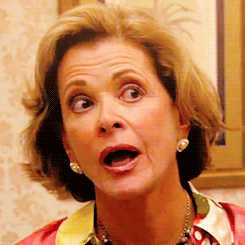Sounds like banks have another 1.75 yrs to gamble .
Volcker vote ushers in new world order for banks
By Gina Chon and Tom Braithwaite in Washington
The largest US banks were facing a new world order on Tuesday as regulators voted through the Volcker rule, which will make it harder for Wall Street to make risky gambles that could once again endanger the financial system.
The rule dramatically curbs the way banks do business, banning them from making bets using their own accounts in what is known as proprietary trading, and also holding their chief executives more accountable. But it gives regulators a lot of room for interpretation.
As a result, the way agencies implement the rule will be key in determining whether it can really prevent another incident like the $6bn-plus “London whale” derivatives trading loss JPMorgan suffered in 2012.
Some Wall Street law firms breathed a sigh of relief after seeing the final terms. “We think this is killing a fly with a hammer but we’re not going to relitigate that point now,” said one senior bank executive. “It’s clear that the technicians at the regulators made a sincere effort to improve it.”
Shares in Morgan Stanley and Goldman Sachs, the two most trading-reliant Wall Street banks, were the top performers in the industry, rising more than 1.2 per cent.
However, trade associations hinted at legal action or slammed the provisions. The American Bankers Association said banks and customers would suffer from this “enormous, highly complex and burdensome rule,” which would make it too hard to provide some services that pose no risk to the financial system.
The long-awaited rule is named after Paul Volcker, the former Federal Reserve chairman who wanted to prohibit banks from making speculative bets that he said helped cause the financial crisis in 2008.
“The result should help the process of restoring trust and confidence in commercial banking institutions,” Mr Volcker said on Tuesday. “It is, after all, those institutions which benefit from explicit and implicit public support that we count on to provide a strong, safe, and effective financial system.”
It became one of the most contentious hallmarks of the Dodd-Frank financial reforms of 2010, but it endured infighting by the five regulatory agencies involved in writing it, intense lobbying by banks to stop it and pressure from bank critics to strengthen it.
Finally on Tuesday, after pressure from President Barack Obama and Treasury Secretary Jack Lew, all five regulatory agencies that needed to approve the measure had done so, despite some dissent within the Commodity Futures Trading Commission and the Securities and Exchange Commission.
“The Volcker rule will make it illegal for firms to use government-insured money to make speculative bets that threaten the entire financial system, and demand a new era of accountability from CEOs who must sign off on their firm’s practices,” Mr Obama said.
Now banks face the difficult task of grappling with what Volcker means for them and what businesses they will have to curb or eliminate to comply. Among the terms of the 71 page-long rule is a requirement that banks set up incentives so they do not encourage traders to engage in proprietary trading.
The text of the measure totals about 1,000 pages because of a preamble that addresses more than 18,000 letters submitting comment, which could be used by the agencies as guidance.
"The Volcker rule will demand a new era of accountability from CEOs who must sign off on their firm’s practices"
- Barack Obama
The rule goes into effect on April 1 2014, although the compliance date will be delayed for a year to July 21 2015. But starting in June 2014, large banks are required to begin reporting certain information to show they are working to comply with the rule.
One aspect that regulators strengthened in recent weeks was how the rule defines hedging, an issue that gained new urgency after JPMorgan’s derivatives trading loss.
“The London whale episode allowed staff to test the procedural and substantive requirements of the proposed rule against a real-world example of what should not happen in a banking organisation,” said Daniel Tarullo, Federal Reserve governor.
Jamie Dimon, JPMorgan chief executive, described the loss as a portfolio hedge. “The final rule has been strengthened from the proposal in several aspects to prevent banking entities from conducting proprietary trading under the guise of hedging,” according to a Fed staff note to its governors.
The rule also requires that banks conduct an analysis, including assessing correlation, to show the hedge is in connection with “identified positions, contracts or other holdings of the banking entity.”
To hold chief executives accountable, they must attest in writing that their banks are setting up processes to maintain, enforce and review compliance programmes, but they do not have to certify that the bank is not engaged in proprietary trading.
Another provision that was strengthened involves banks being prohibited from investing in or sponsoring what are called “covered funds”, which include hedge funds and private equity funds.
Banks will be able to engage in market-making activities in which they buy and sell bonds and other financial instruments as long as they prove they are aimed at meeting the “reasonably expected near term demands of clients, customers or counterparties”.





